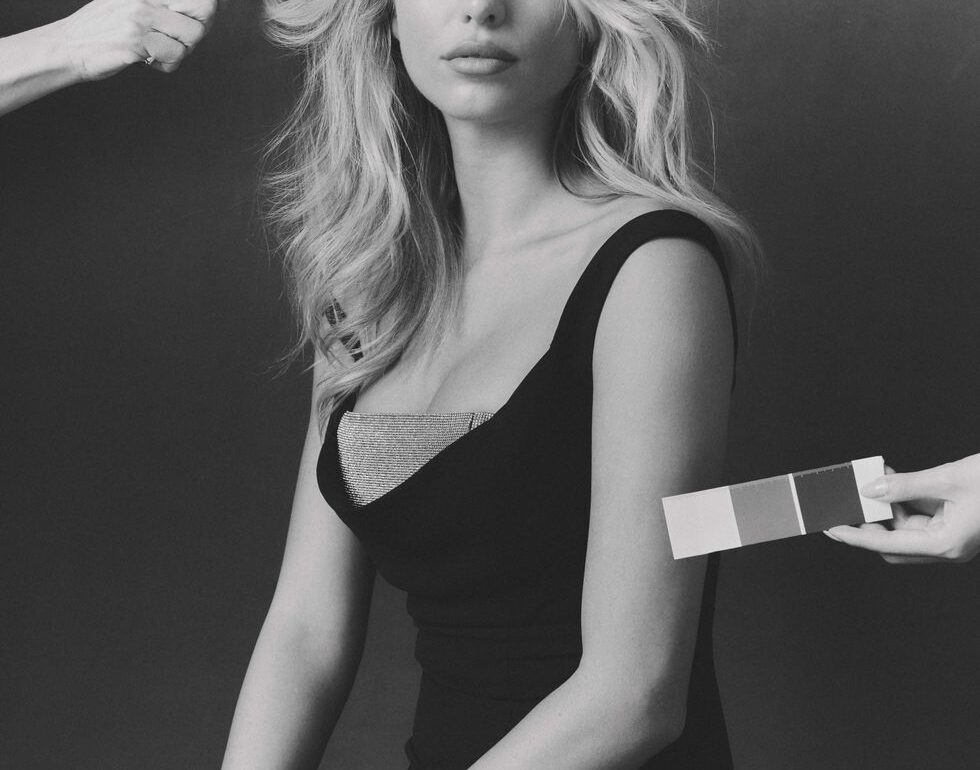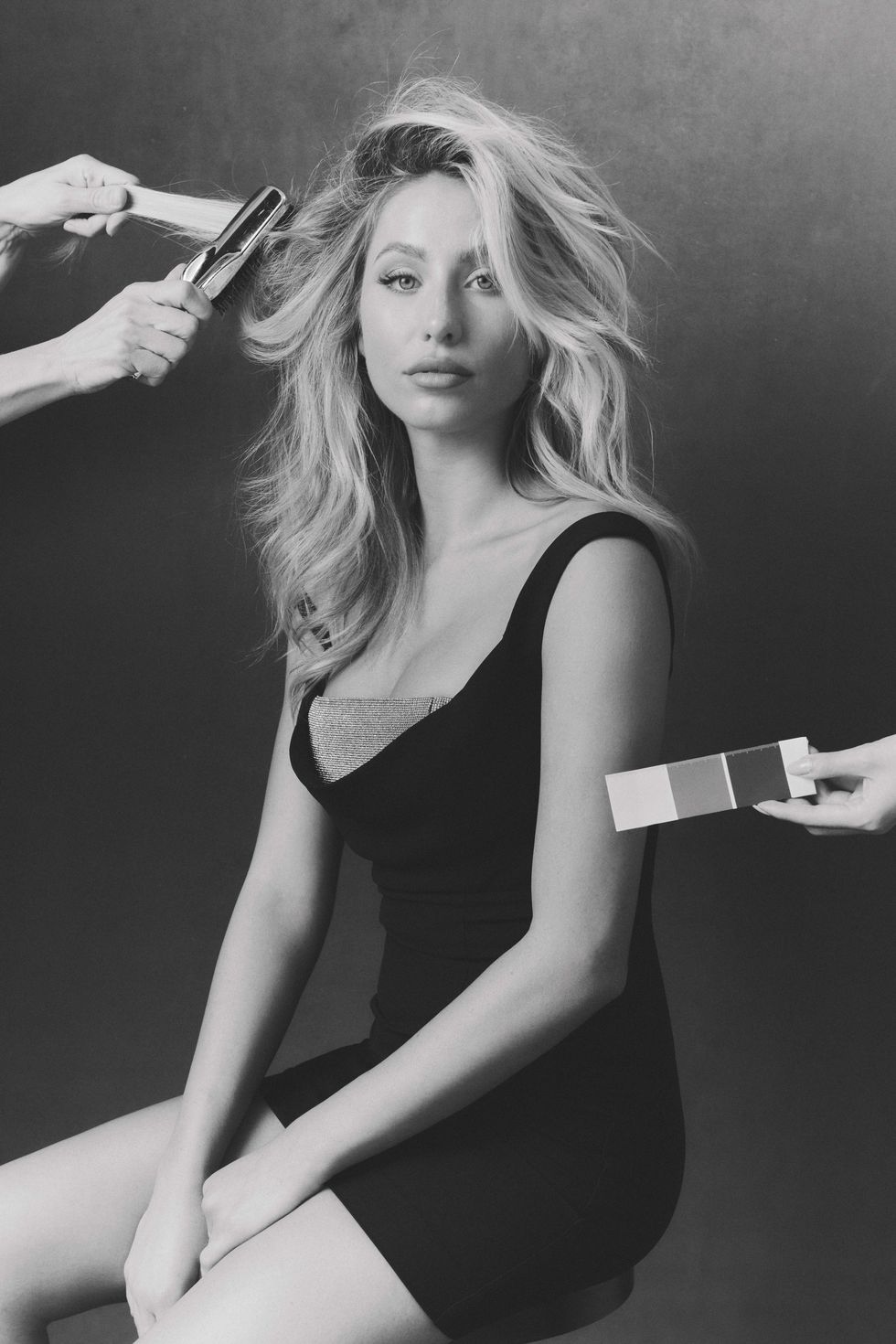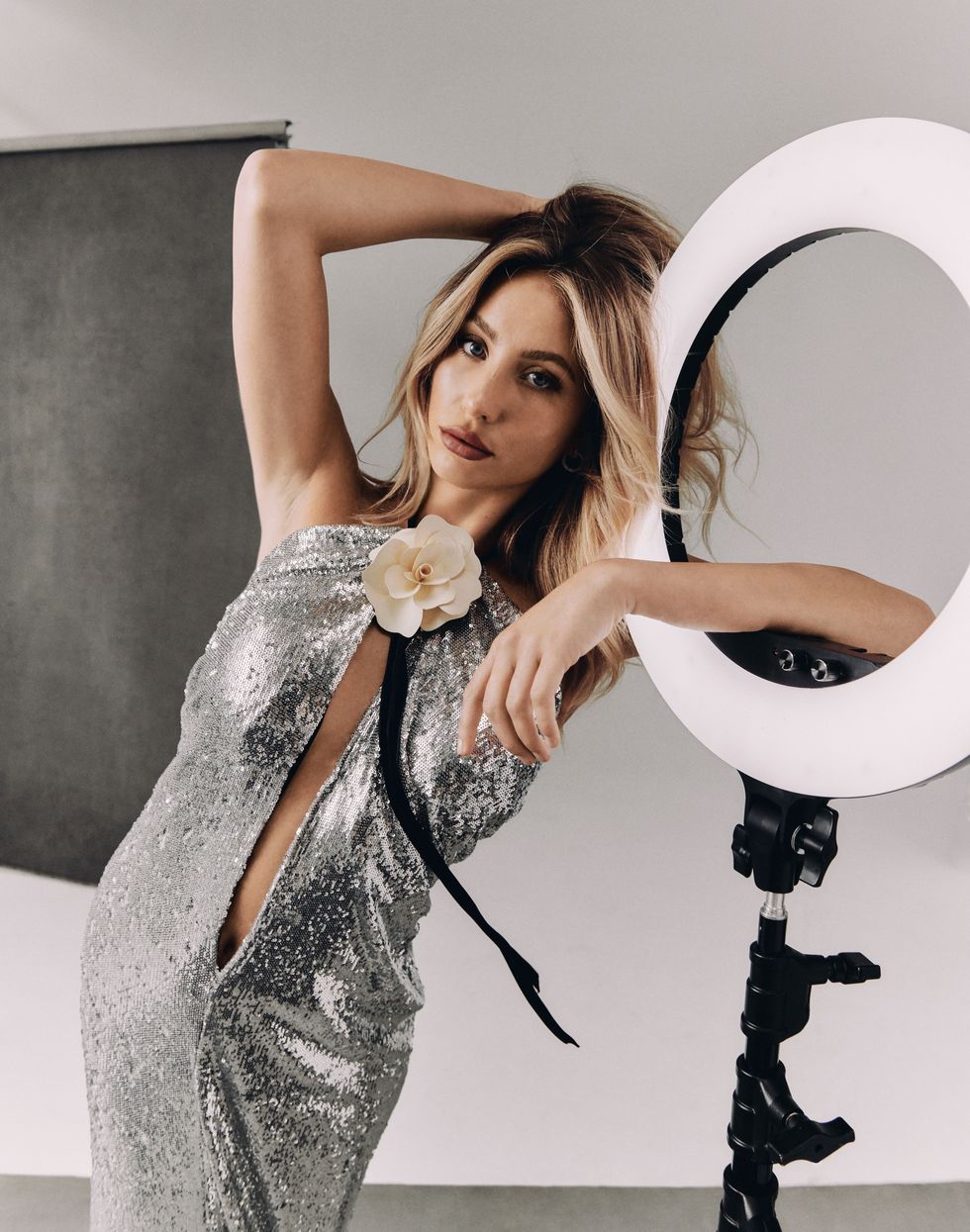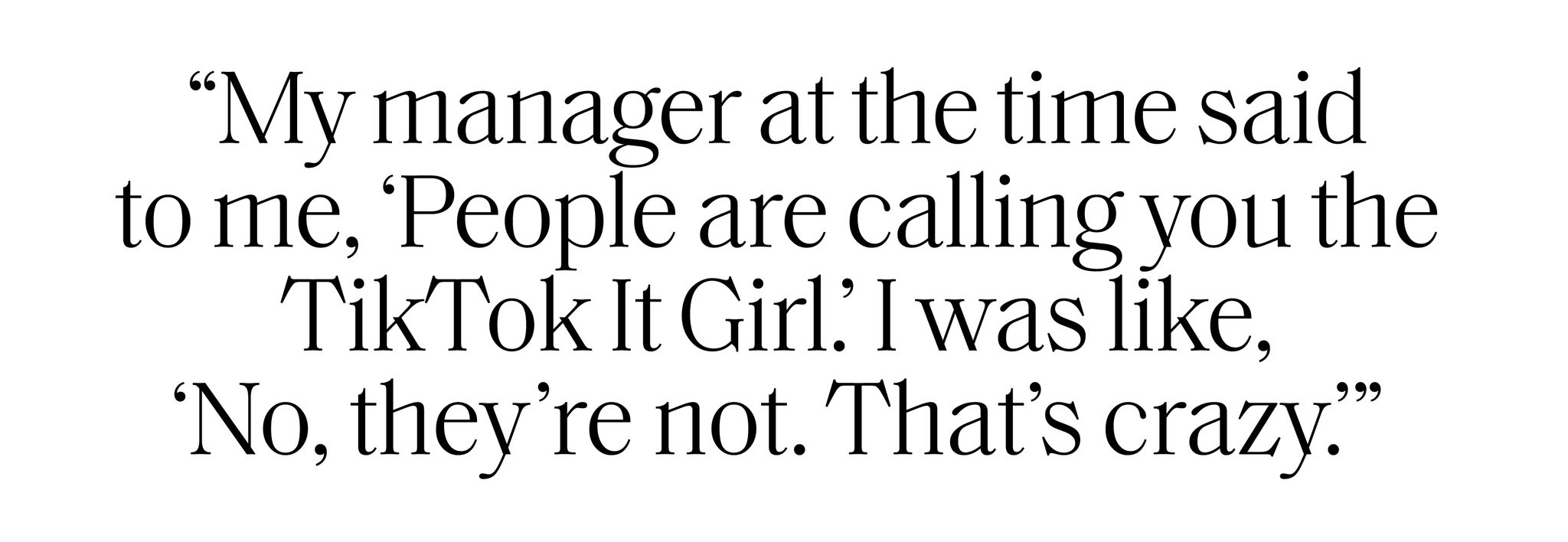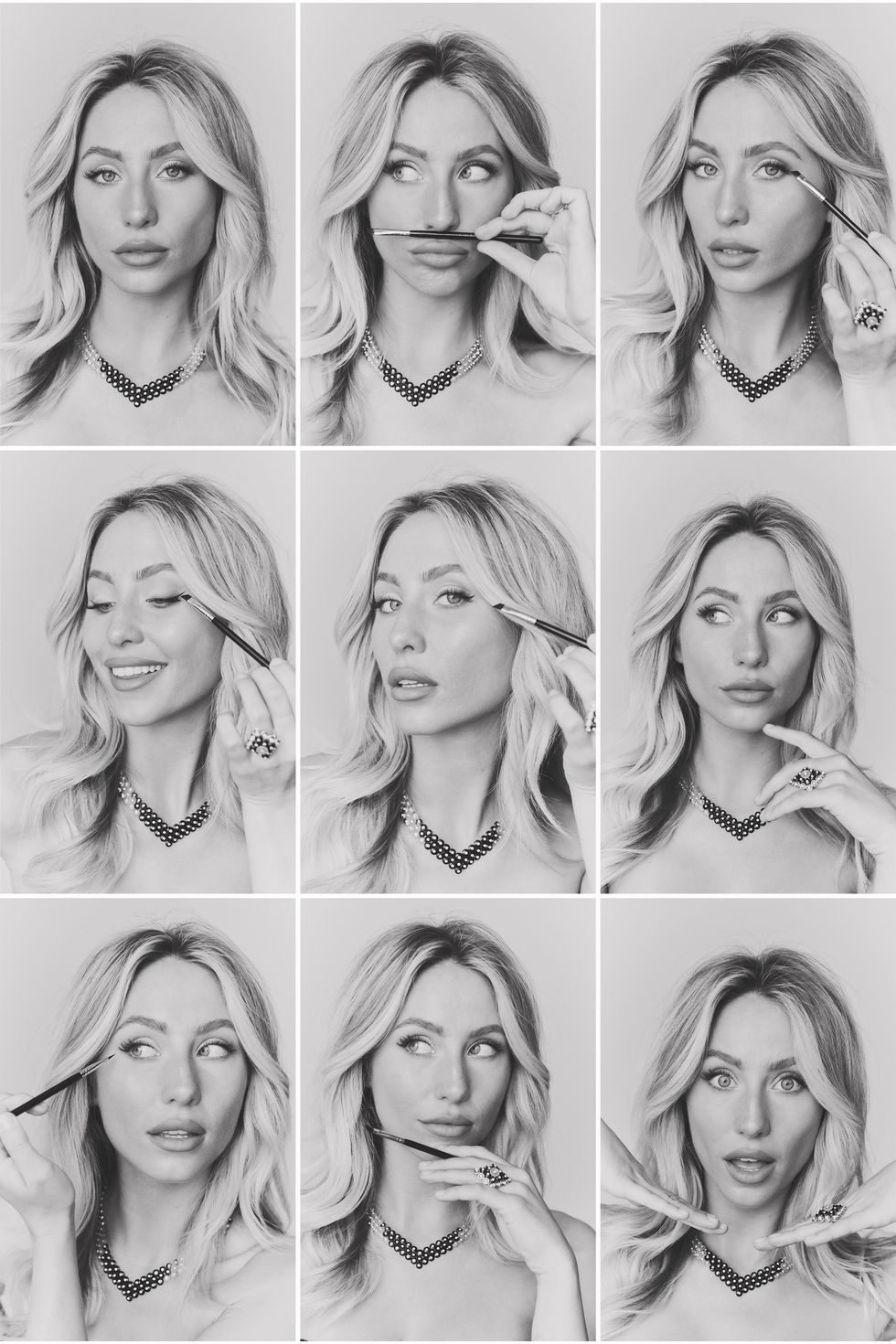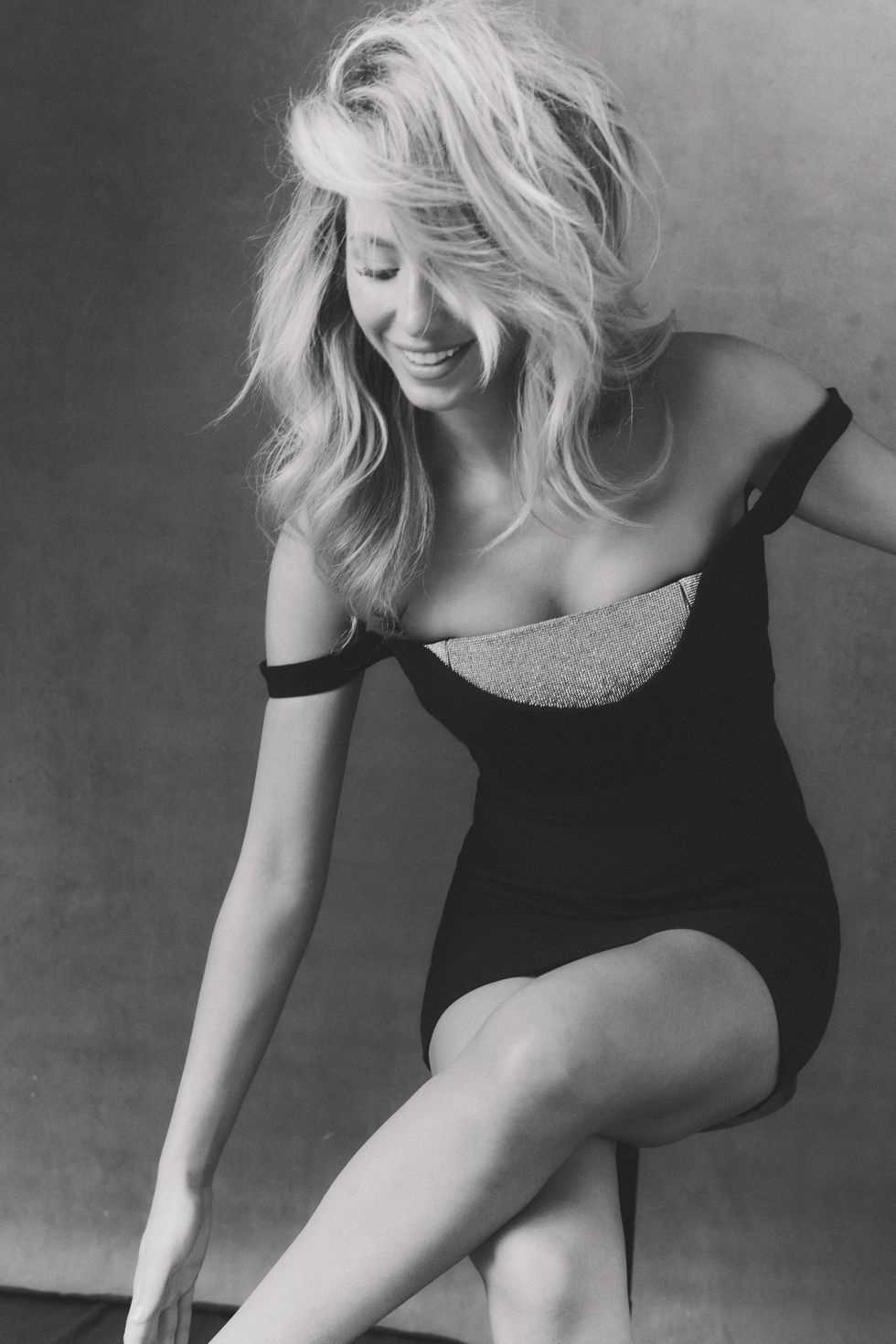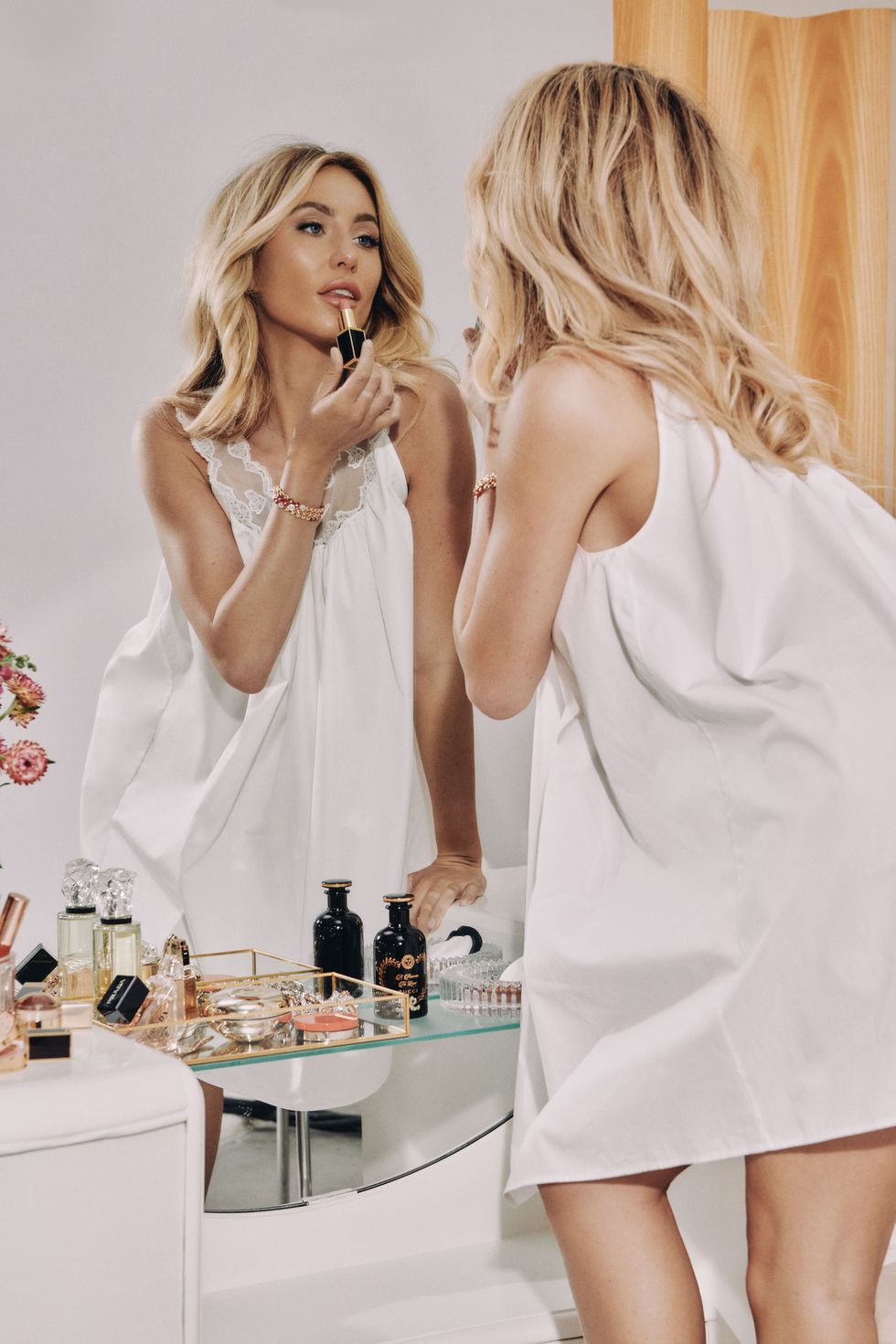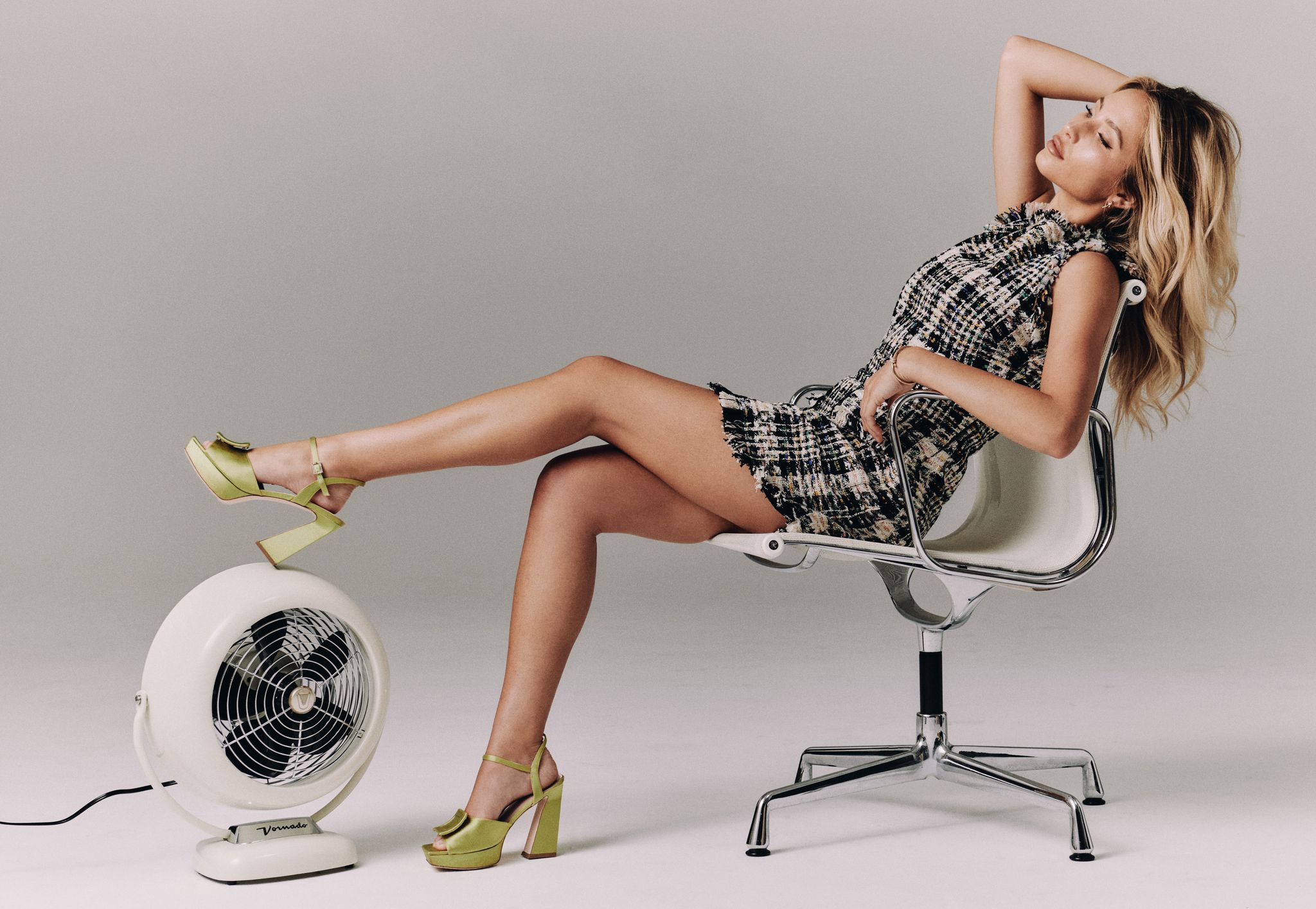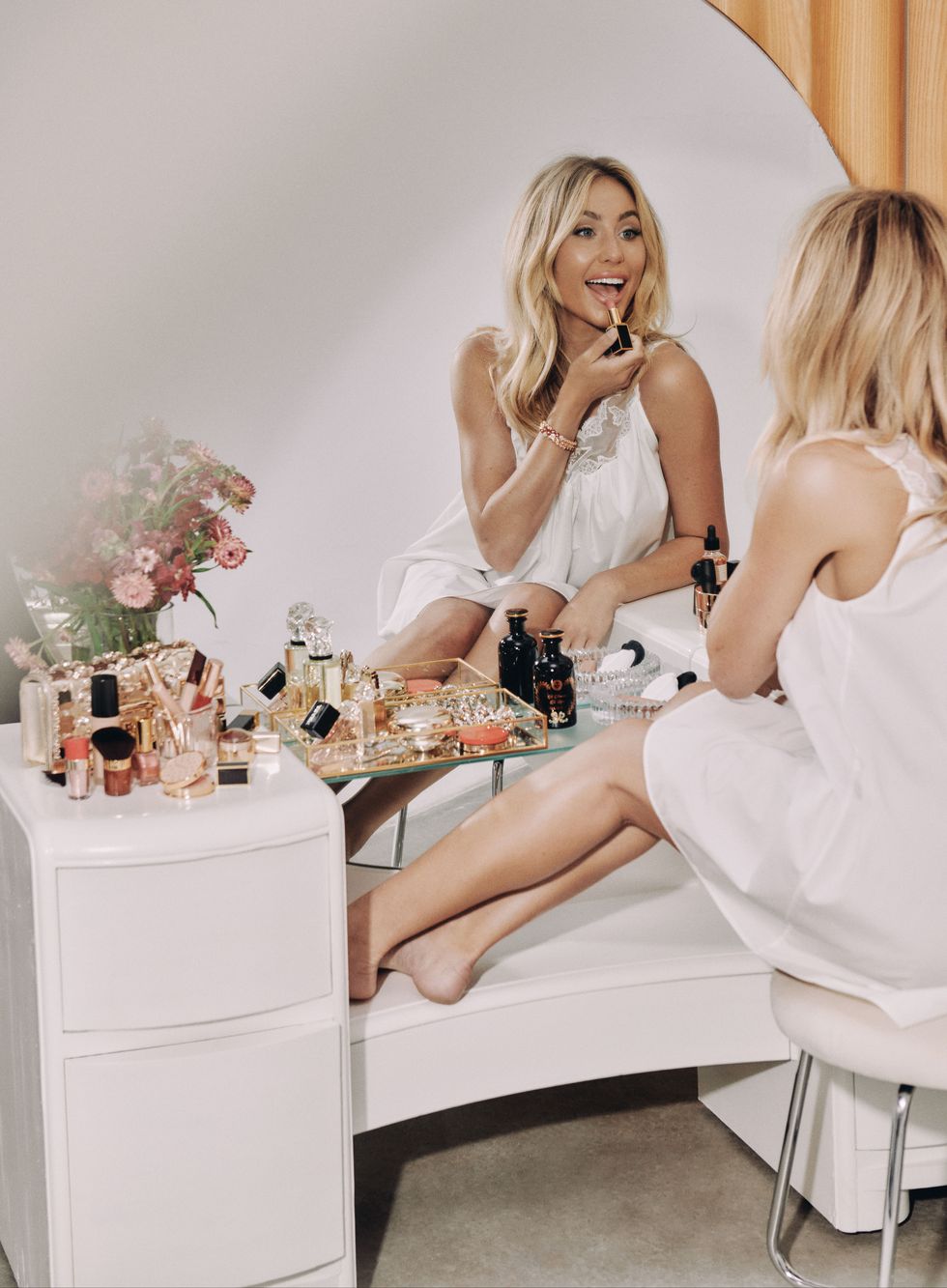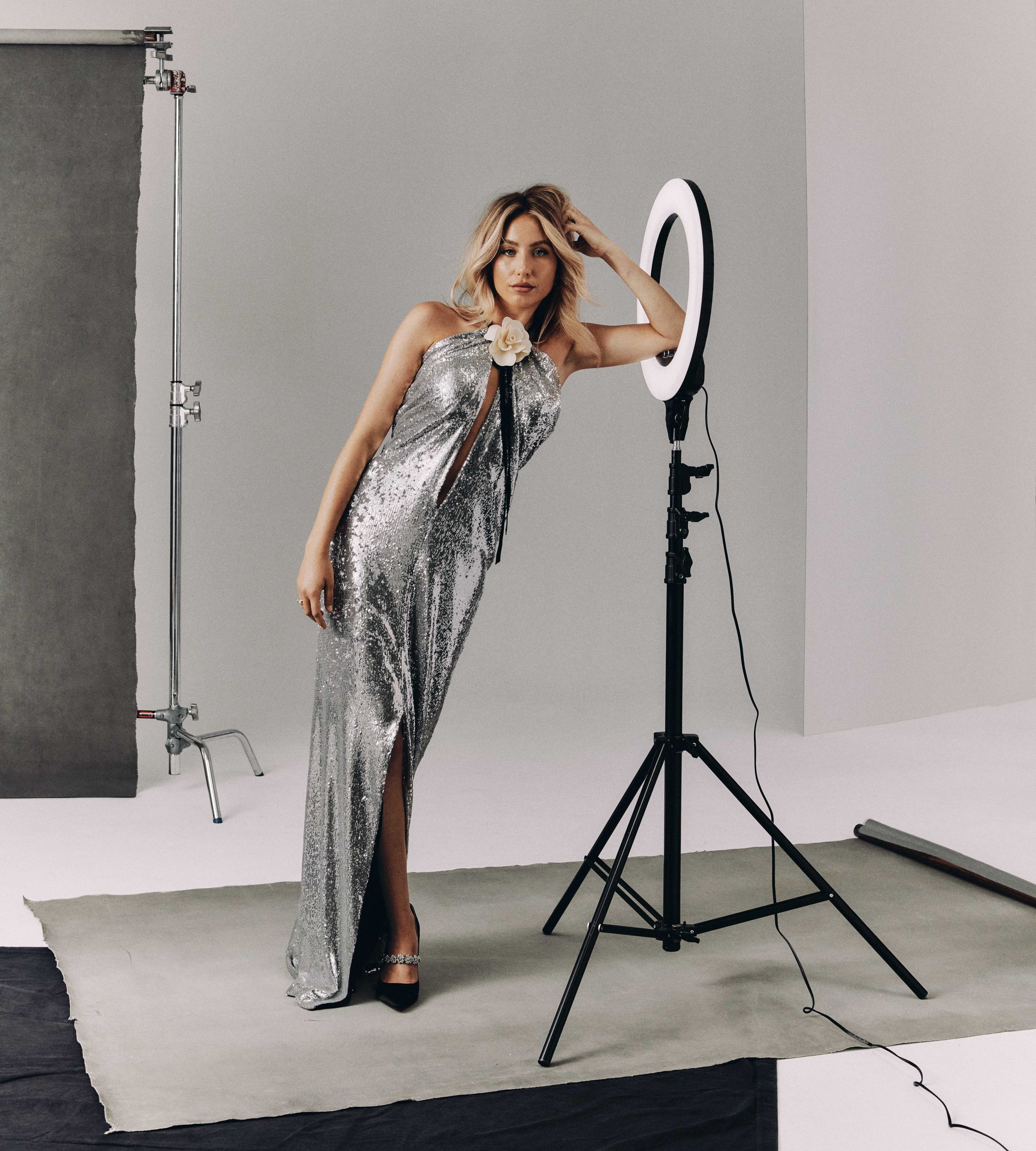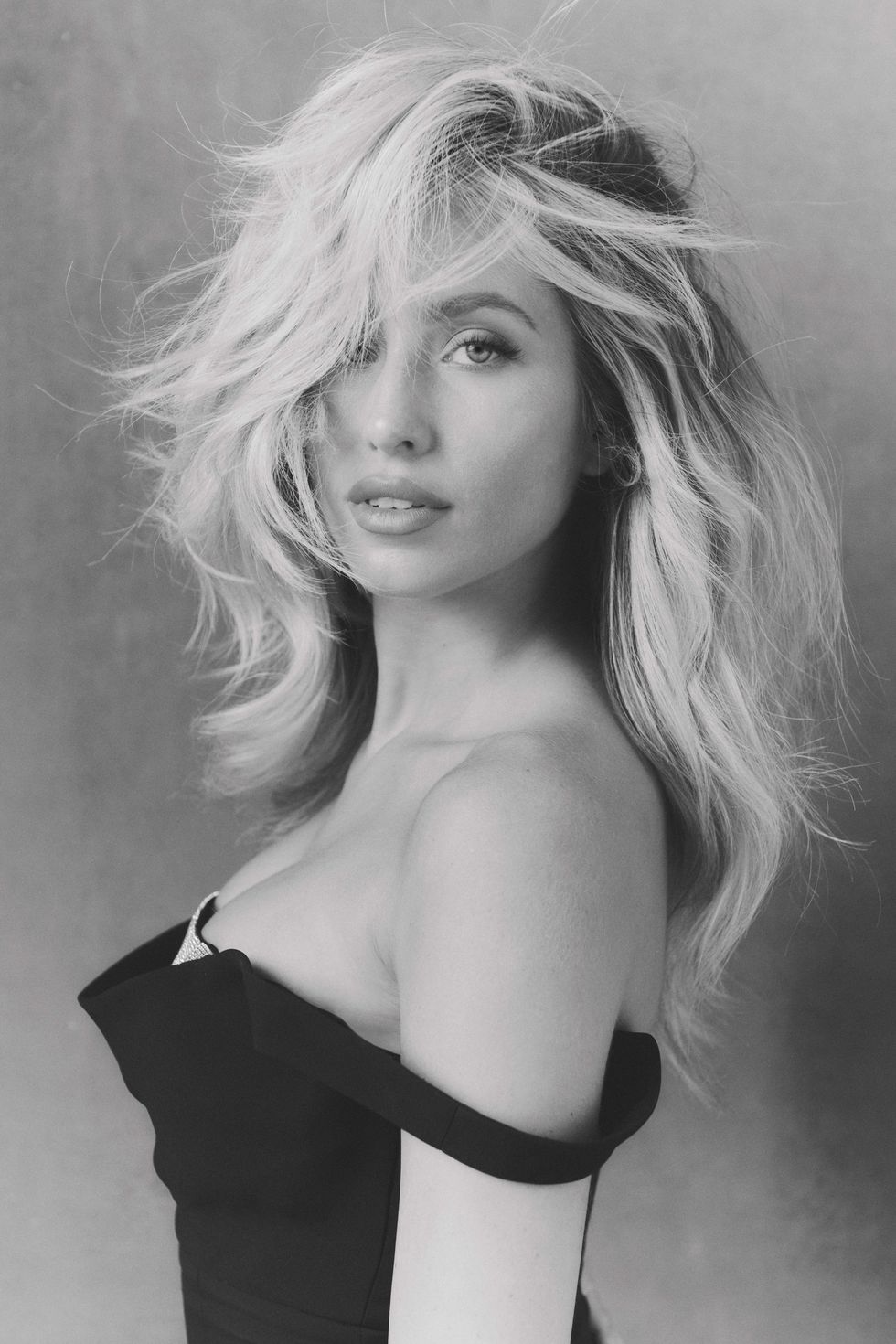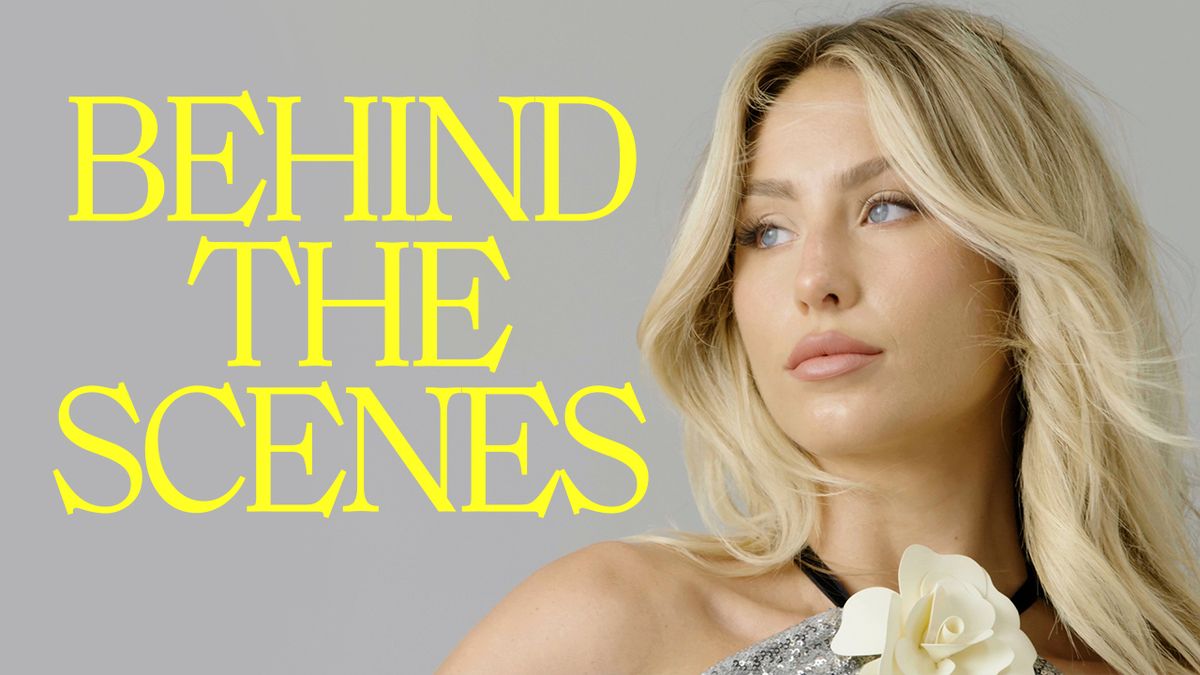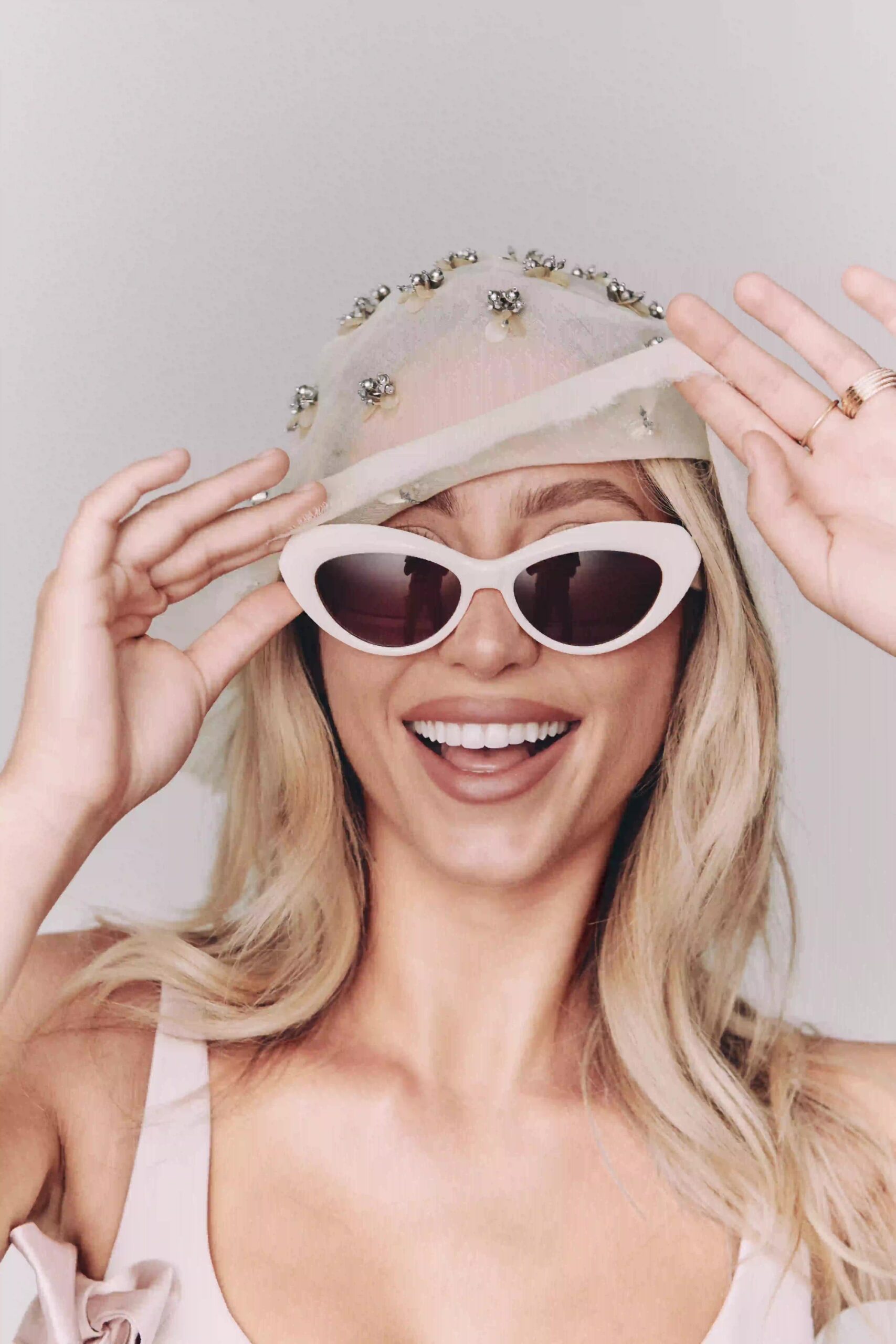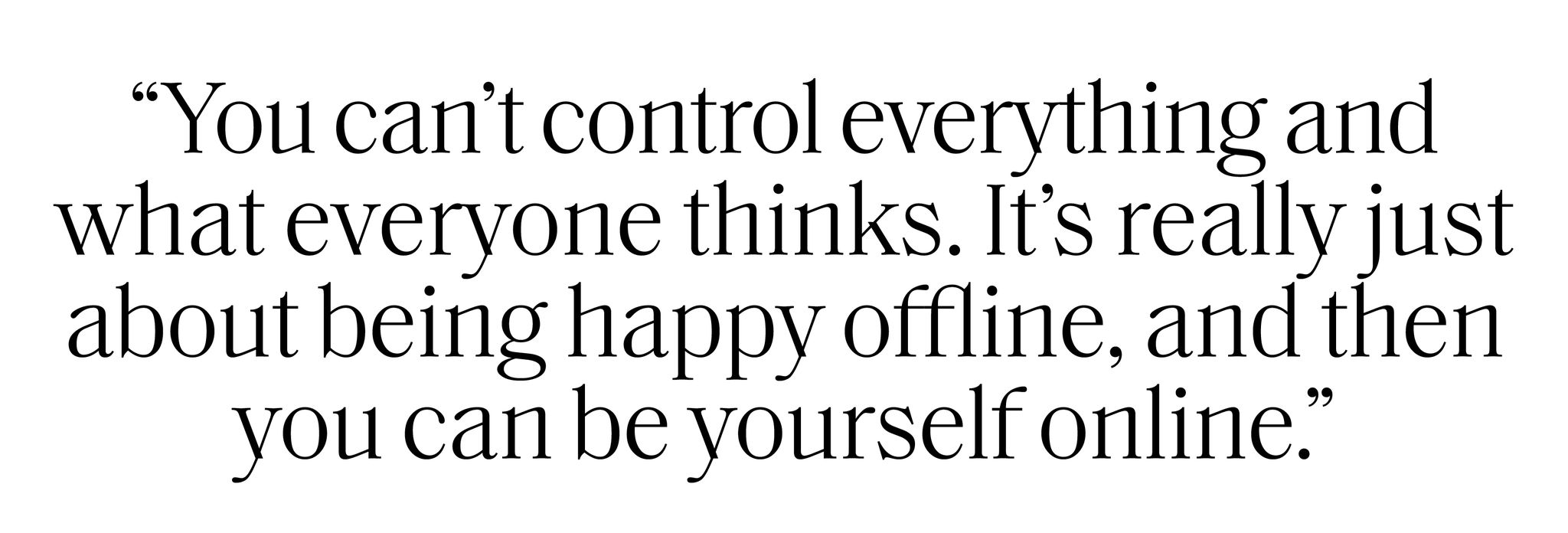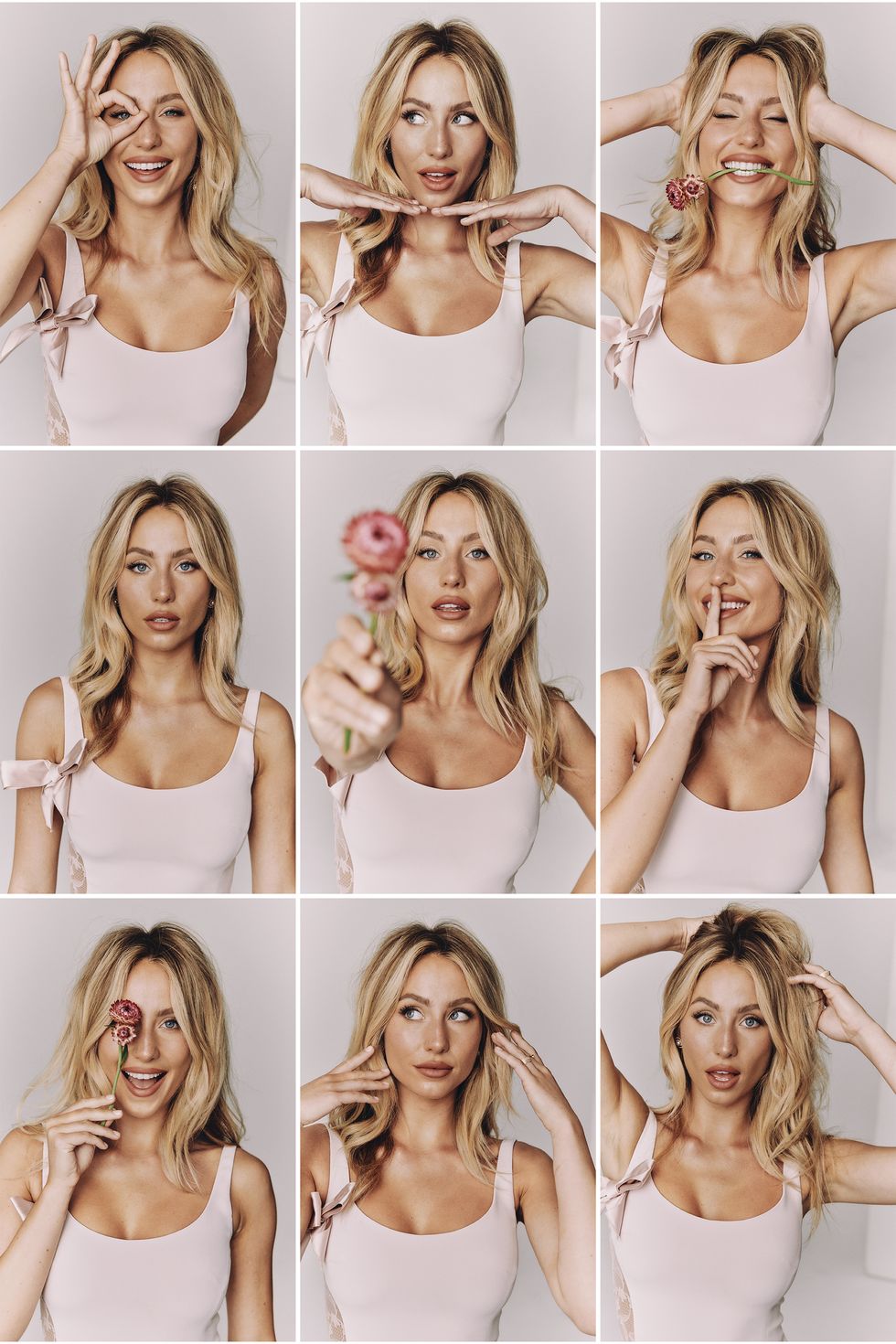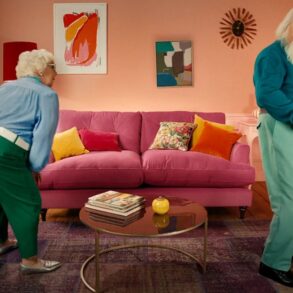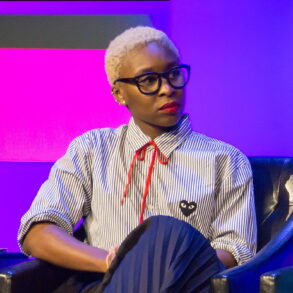Alix Earle wants you to get ready with her.
She glides highlighter over her face, tiger-striping her cheeks and forehead with bronzing drops, stippling a fluffy brush over the whole perfect canvas. Demystifying each step as she goes, she drops tips for “you guys” and mildly roasts herself. Referencing a Nars liquid blush, she says, “My friends were like, ‘You cannot post this. Do not sell it out.’” While styling her brows, she confides, “I really need to get my eyebrows done.”
The whole time, she’s leaning in, utterly unselfconscious before the camera, looking like she’s extremely interested in you, the viewer. Like the leading lady of a rom-com, Earle is beautiful in a way that feels approachable, which is important. For her 5.7 million followers (and counting), Earle is the girl next door, at least in the gated community of TikTok. Maybe she’s the best friend who taught you how to use eyeliner; the sorority sister who held your hair back when you had one too many shots, and then promptly fixed your running mascara; the cousin whose mom let her buy Great Lash before you were even allowed to wear clear lip gloss. She’s mastered the precise titration between aspirational and relatable. When she’s doing something that falls into the first column (say, going to a club), you can bet she’ll also be doing, and posting, something that falls into the second (e.g., putting in her retainer in said club).
She is, in the parlance of parasocial relationships and endless memes, literally me. And, it seems, that’s what we want now when it comes to our celebrities, our politicians, and especially the people we watch on our phones. Friendship sells Tarte Shape Tape Radiant concealer and Too Faced Better Than Sex waterproof mascara and Barbie-pink cans of her pre-workout powder and energy drink, AminoLean Berry Alixir.
But what happens when the Everygirl becomes a bona fide It Girl?
For those who aren’t among her legion of followers, here’s a primer: Earle grew up in New Jersey. Her father owns a very successful construction company; her mom taught her about makeup. As a kid, she practiced dance and learned how to craft a smoky eye between pirouettes. Her family was initially puzzled by the whole TikTok thing (“They had no idea what was going on”), but this past Thanksgiving, they all celebrated as she hit the coveted one-million-follower mark. Soon there was what she calls a “snowball effect,” and she gained two million followers in a month, her ascension as assured as the sun’s in the sky.
One night this past July, Earle posted a #GetReadyWithMe for a Drake concert at Brooklyn’s Barclays Center, but she’s bright-eyed and bushy-tailed the next day (she is 22, after all). Fresh-faced in a white button-down, she recalls that tipping point. “My manager at the time said to me, ‘People are calling you the TikTok It Girl.’ I was like, ‘No, they’re not. That’s crazy.’” Fans started approaching her IRL. “I couldn’t believe what was going on because I had such a love for posting on social media for so long. It was like watching my dreams come true all at once,” she says. “It was good and I wouldn’t have changed anything about it.”
Her statements often have the self-contained, sanded-off quality of a political sound bite. After reading and conducting countless interviews with young celebrities who claim to be borderline traumatized by social media, it’s refreshing, if jarring, to encounter someone who professes to love every aspect of it. Is there anything she wouldn’t share? “I mean, I share a lot. Obviously, conversations with my friends and in relationships, and with my family, all of that’s private. But I kind of give the brief overview of everything. I don’t think there’s anything specific that I try to stay away from.”
As many explainers on Earle have noted (the “Who Is Alix Earle?” media-industrial complex started kicking into full gear around the time her follower count hit seven figures), her stepmother is Ashley Dupré, who became known as the former escort from the then-New York Governor Eliot Spitzer scandal. Earle’s whole family, including her sister Ashtin and half siblings, make frequent appearances in her TikToks. “We definitely have a very modern family,” she says. “It’s normal for me to have my dad, my mom, and my stepmom all going on the same trips.”
She and Dupré are “super close, and we’ve gotten to such a good point. Whatever’s happened in the past, we’ve all gotten past it as a family.” It helps that Dupré knows her way around public critique: “One time I was overwhelmed about something of mine and I called my dad. He was like, ‘You should really talk to Ashley about this. She has dealt with this before, stuff in the media.’ It’s brought us closer because she’s able to guide me through it.”
What kind of advice does she give, exactly? “Life goes on. Not everything is as crazy as it feels in the moment. People get past things.”
Earle does not have a working thesis on why her #GetReadyWithMe videos got so popular. “That’s a question I ask myself sometimes,” she says. But when she joined TikTok in 2019, she found that the unfiltered live streams she posted while getting ready to go out curiously performed better than the polished videos she spent more time on.
Another reality-sells moment came when Earle was experiencing a breakout. “I didn’t want to post anymore because my skin got so bad,” she says, “and I was like, ‘Well, now I feel disgusting. I don’t want to be on camera.’ I was at such a low point that I figured I would just share it and maybe it could help someone.” When she posted a video showing her cystic acne, “I found a little community,” she says, “and I loved answering everyone’s questions and DMs.”
Even on TikTok, known for being less picture-perfect than Instagram, her candor stands out. “Not a lot of people are comfortable with getting below that surface level,” she says. For starters, in a world where some celebrities won’t even admit to getting a little Botox, she is open about her breast augmentation. (In January, she celebrated her “boobaversary” with breast-themed cupcakes. “Wish them a happy birthday,” she instructed her followers.) “If I’ve gotten it done, I’m fine with sharing it,” she says. Growing up, she saw all “these perfect people online” but didn’t know how they got that way. “No one really talks about it.” So, she decided, why lie? “And also, it’s a pretty obvious thing.”
- Beauty Tip: Getting ready has never been more fun with the Benefit x Alix Earle limited-edition bundle (available with a purchase of $60 or more on Benefit products at Ulta Beauty) to make every #GRWM an event.
She’s also posted about being upset because a then-boyfriend wouldn’t post pictures of them together on social media (relatable, except for the fact that said boyfriend was a professional baseball player). She casually opened up about going on Lexapro for anxiety and panic attacks while she removed her makeup in an “Un-GRWM” video. She even showed off her messy college apartment. For most of the time she’s been famous, Earle has been a full-time student, majoring in marketing at the University of Miami. She graduated in May, but remains as chirpy about the school as a mascot (who, incidentally, is Sebastian the Ibis), even endowing a scholarship in her name for business students in their junior and senior years. She claims her classmates were unfazed by having a TikTok star in their midst. “Everything at school was normal. Nothing ever changed,” she insists.
This double life led her friends to call her Hannah Montana. A Reddit commenter once compared tracking her escapades to watching a National Geographic show. And yes, following the jet-setting Hannah’s adventures is fun, but the goofy Miley Cyrus is the one her followers want. When Earle met Selena Gomez and asked Gomez to do her makeup using her Rare Beauty line, she was in Miley mode, perhaps fittingly, as the two former Disney stars are old friends. (“I’m so awk” she posted, captioning the video “not me shaking and sweating.”) Then she started popping up everywhere, like a Zelig with really good angles: posing with Hailey Bieber at the opening party for OBB Studios; wearing neon orange at Drake’s birthday party; and, in a meta moment, being invited to the actual Miley’s New Year’s Eve party). “Ten, 12-year-old Alix would be screaming, crying right now if she knew” about these encounters, she says. “Everything kind of feels like I’m dreaming still.”
The #AlixEarleEffect started with a light going on. Not metaphorically. This past October, “I got this little light on Amazon and I was obsessed with it.” She turned off all the lights in her room and demonstrated the clip-on gadget’s flattering glow to her followers. Soon people were calling it the #AlixEarleLight (everything associated with Earle seems to have a hashtag appended to it). “That was when I started to realize the impact of things after I say something,” she says. Earle became a fairy godmother who could make makeup disappear off shelves. A wave of her wand granted products instant virality, whether it was an inexpensive white eyeliner from NYX or a top-of-the-line Giorgio Armani foundation. And suddenly everyone, including high-end beauty brands, wanted a piece of her. I tell Earle I heard a rumor that her beauty haul is so big she has a warehouse for it. “I can deny that,” she says smoothly. She did, however, share the wealth with her six roommates.
The Alix Earle Effect has a flip side, too. Back in December, Earle recommended Rosemary Mint Scalp & Hair Strengthening Oil from the Black-founded brand Mielle Organics, causing the product to, you guessed it, sell out. Only now, things weren’t so rosy. “Mielle is about to be gentrified,” read one response. Earle hasn’t addressed the controversy, and she declines to speak about it to me. But Kayla Greaves, a beauty expert and journalist, explains that for Black women like herself, “We spent so much of our lives, especially when it comes to beauty, feeling so excluded and on the outside of things—to the point where we didn’t even have options for our hair.” Growing up, she had to drive to another town a half-hour away just to find products that worked for her. Earle’s video stirred up emotions because hair is so personal for Black women, and because “people felt like we finally had something for ourselves and other people were taking it from us.” Which connects to a larger narrative about beauty recently: trends like “clean girl” hairstyles, “brownie glazed” lips, and nail extensions were popularized by Black and brown women, but “the minute it’s on a white girl, it’s chic, it’s cool.”
Some argued that the benefits of supporting a Black-founded brand outweighed the drawbacks of the product being less accessible. In an opinion piece for Cosmopolitan, Melanie Curry made the case that “we need our desire for Black women to thrive to be deeper than our annoyance in this moment. Plus, white brands profit off of Black culture all the time, and we *still* put $$ in their pockets, so we should be happy that one of our own is getting her check.”
“In order to have growth, there have to be people who are outside of our community supporting Black businesses in order for us to get [to a place where we can have] economic prosperity,” Greaves adds. “I think we also have to celebrate the fact that we have so many options now, to the point where we don’t have to use products that weren’t meant for us. Now people are using products that are for us, and that they think are meant for them. The tables have turned. It’s something to get used to, but it’s such a good problem for us to have so many hair care options now.”
Earle gets criticism of other kinds in other forums as well. In fact, there are two subreddits devoted to snarking on her: r/AlixEarleSnark (a sample post heading: “Alix is absolutely not relatable anymore”) and r/AlixEarleSnarky, which branched off from the main one. I ask Earle how she deals with criticism. It’s been strange, she says, “to see people talk about me as if I’m not able to see the videos or read the comments. I’m sitting right there on my phone scrolling.” But, she says, “I’m putting myself out there, so people are allowed to have their own opinions….I care about their constructive criticism, but not so much the hate.”
I ask for an example of a time she learned from constructive criticism, and she thinks carefully: Last fall she took a brand deal with a clothing company. “A lot of my followers were saying that they knew I didn’t like the outfits I was promoting, and they could tell because they know me,” she says. “I realized that you can’t just be taking things as a money grab. I don’t like to promote anything unless it’s something I like, or that I think my followers would like. That was a big turning point in how I looked at things business-wise.”
Another critique, one that goes beyond Earle herself but often uses her as an avatar, is that her virality was aided by the fact that she’s a thin, blonde, conventionally attractive white creator. Whether that’s the fault of “the algorithm” or the humans who use it is up for debate, but some Black women have found themselves asking, “Where’s our Alix Earle?” and questioning why it’s so much harder for Black creators to go viral simply for being “relatable.” Earle tells me, “I always want to uplift other creators and support them, and help them in any way I can. There are a ton of other creators that I’m friends with and I met through work, which has been really cool. I don’t know, I never really think of things like that too much. I just want to support everyone and lift them up, and do what other creators did for me when I was starting out, reposting or sharing my stuff, giving me advice.”
A few months back, Earle was having an identity crisis. She’d just graduated college, and she was feeling a little…unmoored. She found herself missing the structure of a class schedule. As a newly minted adult, “a lot of what I do is filling in the blanks with meetings, interviews,” she says. “When I have to get something done, I need to make sure I stay on top of myself.” What scares her is “the unknown,” she explains: “I’m in a very good position where I can go a few different ways with what I want to do. And I have options, which is good, but can be intimidating because you don’t want to make the wrong decision.”
The “real world” she’s heading into feels less precarious than it must for most new grads, given that she’s already established a massive platform and signed with a Hollywood agency, UTA. This month, she was also one of the initial signees to podcaster Alex Cooper’s The Unwell Network, where, according to a press release, she is set to help “develop a variety of multi-platform concepts and projects.” (Details are still thin on the ground, though Earle says, “We’ll be announcing what we’re working on very soon, but if you’re unwell like we are, you will love it.”)
Veil, sunglasses, $300, Lanvin. Dress, Giambattista Valli.
Nor do most of her peers find themselves confessing their current woes while on the Howard Stern Show. But that’s just part of being Alix Earle. Once, she was inviting her followers to “get ready with me” for class. Now it’s the Barbie premiere, or the famous White Party in the Hamptons. She’s been working with stylist Mimi Cuttrell, who also styles Gigi Hadid. In July, she seemingly went “red-carpet official” with rumored boyfriend Braxton Berrios, an NFL player, at the ESPY Awards. She’d apparently teased his existence on TikTok in a very soft-launching-my-BF-by-showing-just-his-arm way. (Relatable.) The romance wasn’t without its roadblocks: Berrios’ ex, model Sophia Culpo, referenced a “betrayal” in a since-deleted Instagram Q&A and shared alleged text messages between the two that challenge the narrative of their breakup timeline. Earlier this month, Earle went on TikTok Live to give an update. “We’re just not super serious. We didn’t want that for the summer,” she said, adding that the two are “still talking, yes, but just casually.”
“It’s not the negative comments that bother me, but the ones that just aren’t true. You can’t control everything and what everyone thinks. It’s really just about being happy offline, and then you can be yourself online,” Earle says. “Navigating relationships and sharing them at the same time with millions of people is definitely a little stressful. I like to share what goes on in my life with my followers, but there are also some moments that you have to keep private.”
She’s also private about what’s next for her. A podcast? A TV show? Her own beauty line? All she’ll say is that she has a Notes app full of ideas. “I want to build this umbrella brand that I’m able to branch out and do a lot of things from.” The one thing she won’t do is “go the music route,” she laughs. “I’m not a good singer.”
As assuredly as she talks about branding, there’s still a part of Earle that feels like a college student, one who still drifts into yearbook-ready sentiments. Her “pinch-me moment” wasn’t partying with J.Lo and Kim Kardashian at the White Party or walking Barbie’s pink carpet. It was this: “I finished my last final. I was driving back in the car, and I started crying. I knew that chapter of my life was over, and I never really imagined that I would be in this position, graduating college….I just sat in the car, alone, taking it all in.”
Makeup by Nadia Tayeh at A-Frame Agency; hair by Romina Manenti using MAY11 Hair Oil; manicure by Mo Qin using polish Ballerina by Chanel; set design by Rachel DeLoache Williams for Whitlow Park; Flowers courtesy of Green Thumb Organic Farm in Water Mill, New York.
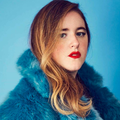
ELLE Fashion Features Director
Véronique Hyland is ELLE’s Fashion Features Director and the author of the book Dress Code, which was selected as one of The New Yorker’s Best Books of the Year. Her writing has previously appeared in The New York Times Magazine, The New Yorker, W, New York magazine, Harper’s Bazaar, and Condé Nast Traveler.
This post was originally published on this site be sure to check out more of their content.




